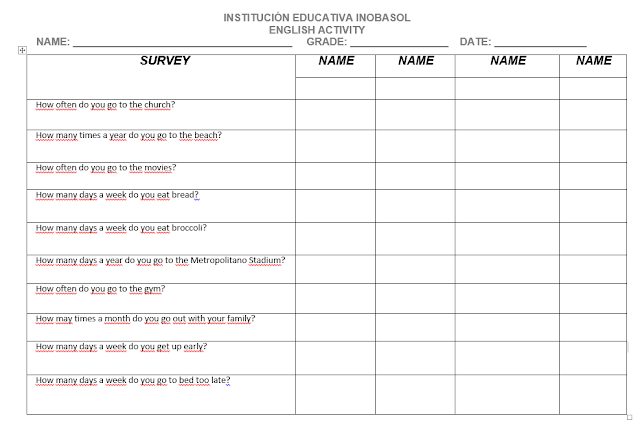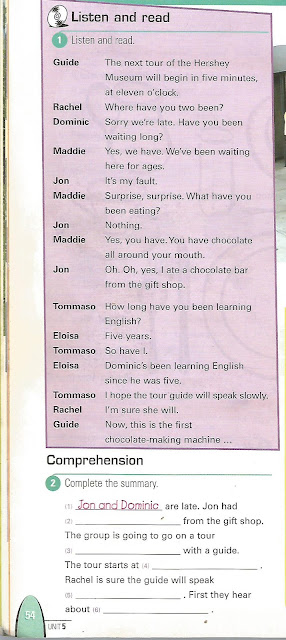PHRASAL VERBS
PHRASAL VERBS
WARM UP
Complete the chart
VERB
|
MEANING
|
To locate
by search or effort
|
|
turn
|
|
To leave
a place
|
|
Look
|
|
To view
with attention or interest
|
|
To receive
or come to have possession
|
|
check
|
|
ask
|
GRAMMAR
The following words are the most commonly used prepositions
below
|
excepting
|
off
|
toward
| |
above
|
beneath
|
for
|
on
|
under
|
across
|
beside(s)
|
from
|
onto
|
underneath
|
after
|
between
|
in
|
out
|
until
|
against
|
beyond
|
in front of
|
outside
|
up
|
along
|
but
|
inside
|
over
|
upon
|
among
|
by
|
in spite of
|
past
|
up to
|
around
|
concerning
|
instead of
|
regarding
|
with
|
at
|
despite
|
into
|
since
|
within
|
because of
|
down
|
like
|
through
|
without
|
before
|
during
|
near
|
throughout
|
with regard to
|
behind
|
except
|
of
|
to
|
with respect to
|
So you can say put out / get on / take off / run away etc. These verbs are phrasal verbs.
We often use out / off / up, etc. with verbs of movement. For example:
Get on: The bus was full. We couldn´t get on.
Come back: Sally is leaving tomorrow and coming back on Saturday.
Turn round: When I touched him on the shoulder, he turned round.
But often the second word (out / off / up, etc) gives a special meaning to the verb. For example:
Break down: Sorry. I am late. The car broke down (=the engine stopped working)
.Look out: Look out! There is a car coming. (= be careful)
Get up: I was very tired this morning. I couldn´t get up. (= get out of bed)
Get by: My French is not very good but it is enough to get by ( to manage)

 Sometimes a phrasal verb is followed by a preposition. For example:
Sometimes a phrasal verb is followed by a preposition. For example:Phrasal verb preposition
Run away (escape) from * Why did you run away from me?
Keep up (continue) with * You are walking too fast. I can´t keep up with you.
Look forward (wait) to * Are you looking forward to your holiday?
Cut down (reduce) on * Jack is trying to cut down on smoking
Sometimes a phrasal verb has an object. Usually there are two possible positions for the object.So you can say:
Object
I turned off the light I turned the light off
object
If the object is a pronoun (it / them / me / him, etc.), only one position is possible:
I turned it off Not I turned off it.
Taken by English grammar in use.
PHRASAL VERBS
SEPARABLE TWO WORD VERBS
ASK OUT
|
Ask
someone for a date
|
BREAK
DOWN
|
Separate
into parts
|
CALL
BACK
|
Return a
call
|
CALL
OFF
|
Cancel
|
CALL
UP
|
Call on
the phone
|
CHECK
OUT
|
Investigate;
take a book out of the library
|
CLEAN
UP
|
Clean
|
DO
OVER
|
Repeat
|
FIGURE
OUT
|
Solve a
problem, find an answer
|
FILL
IN / OUT
|
Complete
|
FIND
OUT
|
Discover
|
GET
UP
|
Make
someone leave his or her bed
|
GIVE
BACK
|
return
|
HAVE
ON
|
Wear
|
KEEP
OUT (OF)
|
Not allow
someone to enter
|
LOOK
UP
|
Look for
information in a book
|
MAKE
UP
|
Invent or
create
|
PAY
BACK
|
Return
money
|
PICK
OUT
|
Choose
|
PICK
UP
|
Clean, go
and get someone or something
|
PUT
BACK
|
Return
something to its place
|
PUT
OFF
|
Postpone
|
PUT
ON
|
Put
clothes on the body
|
PUT
OUT
|
Extinguish
a fire
|
TAKE
DOWN
|
Destroy,
lower
|
TAKE
OUT
|
Take
someone on a date; remove
|
THROW
AWAY / OUT
|
Throw
into the garbage
|
THROW
UP
|
Vomit
|
TURN
DOWN
|
Decrease
the volume
|
TURN
IN
|
Give an
assignment to a teacher, or a boss
|
TURN
OFF
|
Stop a
machine or light
|
TURN
ON
|
Start a
machine or light
|
TURN
UP
|
Increase
the volume
|
WAKE
UP
|
Make
someone stop sleeping
|
INSEPARABLE
TWO WORD VERBS
BREAK DOWN
|
Stop
working
|
BREAK UP
|
To end,
to separate
|
CALL ON
|
Visit
|
CHECK
IN / INTO
|
Register
at a hotel
|
CHECK
INTO
|
Investigate
|
CHECK
OUT / OF
|
Leave a
hotel
|
COME
BACK
|
Return
|
GET
ALONG WITH
|
Have a
good relationship
|
GET
BACK
|
Return
|
GET
IN / INTO
|
Enter a
car, taxi, etc; arrive
|
GET
OFF
|
Leave a
bus, etc
|
GET
ON
|
Enter a
plane, bus, etc
|
GET
OUT
|
Leave a
place or a car
|
GET
OVER
|
To
recover from
|
GIVE
UP
|
Stop
trying
|
GO
BACK
|
Return
|
GO
ON
|
Progress,
continue
|
GO
OVER
|
Review
|
GROW
UP
|
Become an
adult
|
KEEP
ON
|
Continue
|
KEEP
TO
|
Conceal,
hide
|
KEEP
UP
|
Stay at
the same position
|
LOOK
AFTER
|
Take care
of
|
LOOK
FOR
|
Search
|
LOOK
INTO
|
Investigate
|
LOOK
OUT
|
Be
careful
|
OWN
ON
|
admit
|
PASS
AWAY
|
Die
|
PASS
OUT
|
Lose
consciousness
|
SIT
DOWN
|
Stop
standing and sit
|
SHOW
UP
|
Appear;
come
|
STAND
UP
|
Stop
sitting or lying and stand
|
STAY
OUT
|
No
participate; not enter
|
TAKE
OFF
|
Remove
clothes from the body / leave
|
TALK
ABOUT
|
Discuss
|
TELL
ON
|
To tattle
|
TURN
OUT
|
Come, go
|
WAIT
ON
|
Serve
|
WAKE
UP
|
Stop
sleeping
|
WARM
UP
|
Get ready
/ exercise for a short time
|
WATCH
OUT (FOR)
|
Be
careful
|
WRITING, LISTENING, AND SPEAKING




Comentarios
Publicar un comentario